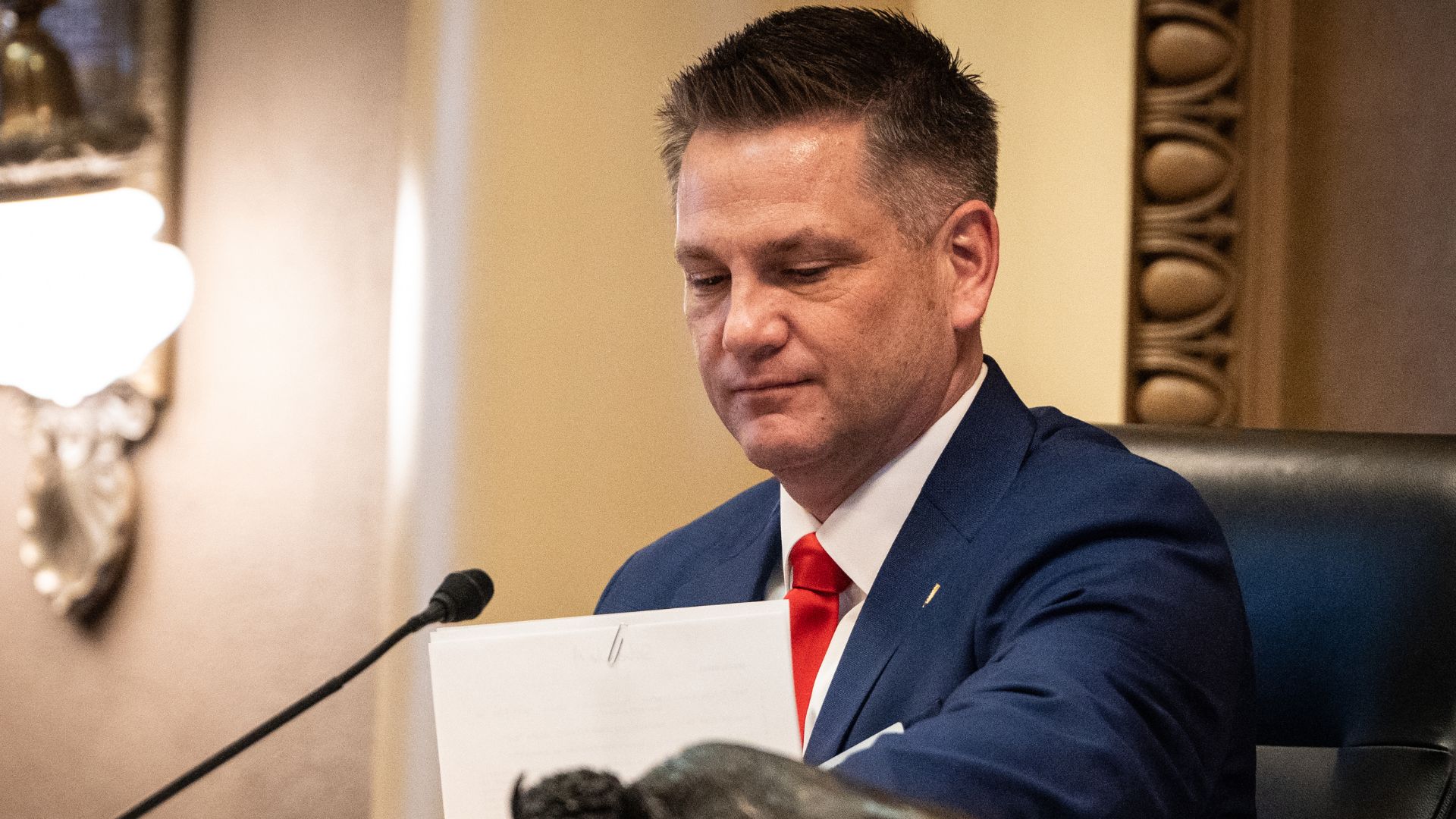Controversial bill providing funding to private schooling students on governor’s desk

Senate President Bo Biteman, R-Ranchester, photo by Michael Smith
POWELL - After some notable changes, a bill allocating funds to families for private schooling is on the governor’s desk.
The controversial bill was signed by Senate President Bo Biteman, R-Ranchester, on Feb. 28 following concurrence between the House, where the bill was born, and the Senate.
Park County School District 1 Superintendent Jay Curtis has opposed the bill on constitutional concerns. If the bill had financial impact on PCSD1 it would come from reduced enrollment, he said in a previous Tribune story, while also noting the reduced enrollment would likely not rise to the level of having a large impact on the district.
HB-199, formerly the Wyoming Freedom Scholarship Bill, would originally have given $7,000 per student to any families opting for private schooling using allocations from mineral royalties that are also used to fund public school. Now named the Steamboat Legacy Scholarship Act and with $30 million coming from the general fund, families would be eligible to receive the funds if they are at or below 250% of the federal poverty level. So, a family of four making up to $80,375 in household income would be eligible.
The bill created some controversy over its lack of an income requirement, and an amendment from Sen. Wendy Schuler, R-Evanston, was passed in the Senate with more comprehensive income guidelines that were later removed.
The bill had Park County support from Sens. Dan Laursen and Tim French, both R-Powell, and Reps. Paul Hoeft, R-Powell, and Rachel Rodriguez-Williams, R-Cody.
Hoeft opposed the previous income requirements in an interview with the Tribune in February.
“I understand in some ways why the Senate was concerned and wanted to put those sideboards on at the income levels. But honestly, because of the way our superintendent of public instruction is overseeing this, it just isn't a blanket check they're going to get,” Hoeft said.
The bill requires oversight from the state superintendent over the use and allocation of the funds.
Families have to be very clear about how they will use the funds, Hoeft said.
The version of the bill signed Feb. 28, stipulates the superintendent will distribute payments quarterly. The bill also requires the superintendent establish a certification process for private schooling options and content requirements as well as assessment of progress. An amendment in the Senate also allows for pre-kindergarten students to receive funds, they must receive necessary instruction “to enter kindergarten.” However the bill does not outline specific assessments or standards at any grade level.
If signed by the governor the bill will go into effect for the 2025-2026 school year.
This story was published on March 4, 2025.








